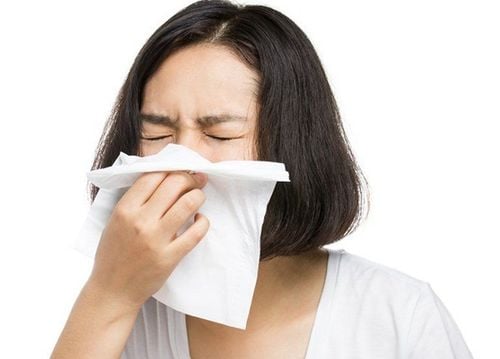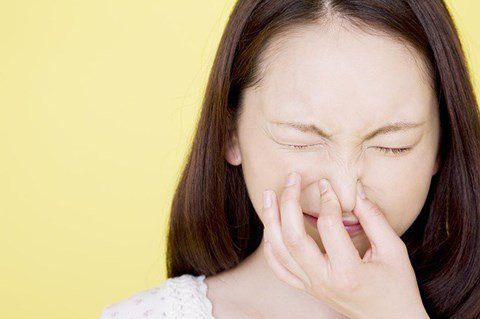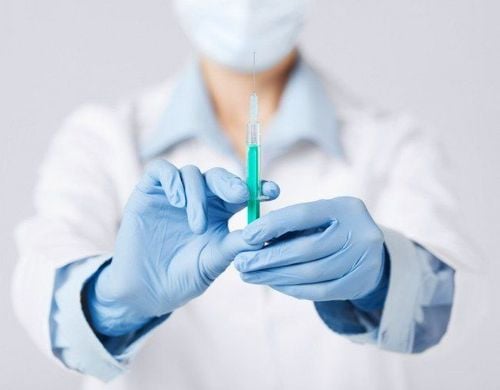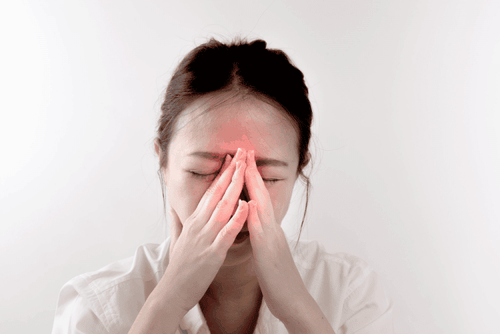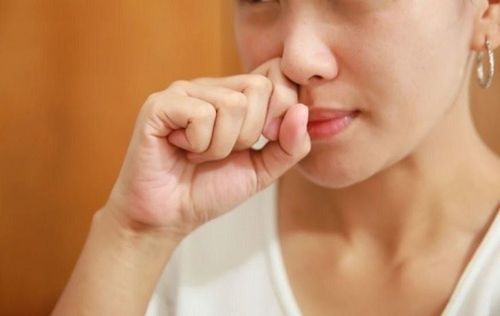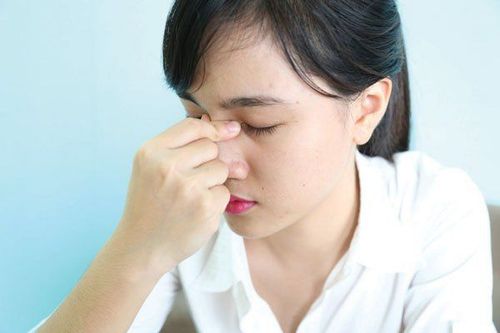This is an automatically translated article.
Nasal polypectomy is the surgical removal of polyps that develop in a patient's nose. Similar to any type of surgery, care after nasal polyp removal also plays a very important role in helping patients recover soon and avoid potentially dangerous complications.1. Overview of nasal polyps
Nasal polyps, also known as benign nasal polyps, develop from the inflamed tissue of the nasal mucosa. When irritated by inflammation or allergies, the lining of the nose becomes red and swollen, which can cause a runny nose. If this condition persists, nasal polyps can form. A nasal polyp is a small round mass, like a small cyst, that can block the nose.
Factors that cause nasal polyps include: Chronic or recurrent sinusitis, cystic fibrosis, allergic rhinitis, asthma, Churg-Strauss syndrome or sensitivity to non-steroidal anti-inflammatory drugs.
In the early stages, nasal polyps do not cause pain. When large, polyps can block the nose, causing prolonged stuffy nose, runny nose, decreased sense of smell, sleep apnea, snoring, headaches if sinusitis is accompanied by nasal polyps.
The treatment of nasal polyps includes medication or surgery. When medication is not effective as desired, surgical methods can be applied to remove polyps completely. The technique of removing polyps by surgery is not too complicated, causes little pain, and rarely has complications.
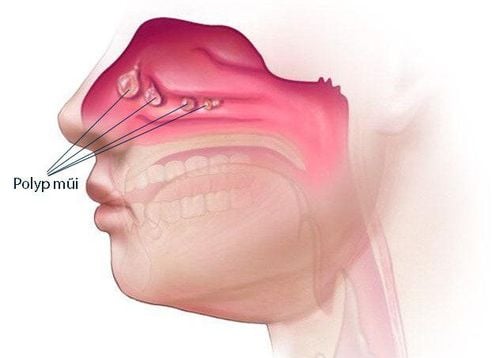
Polyp mũi là một khối tròn nhỏ, giống như một nang nhỏ, có thể làm tắc nghẽn mũi
2. Proper care after rhinoplasty surgery
In general, after removing nasal polyps about 4-6 weeks, the patient will make a full recovery. In the postoperative period, patients and relatives should pay attention to the following issues:
Closely monitor the patient's bleeding, pulse, temperature and blood pressure 4 times in the first day after surgery; If the patient loses a lot of blood, Hct < 25%, blood transfusion should be done immediately; Day 1 - day 5 after surgery should take antibiotics, anti-inflammatory, analgesic and histamine as prescribed by the doctor. These drugs work to treat the disease quickly, prevent the risk of infection and leave scars after surgery. The dose of the drug will be adjusted according to the patient's ability to recover in each case, through each regular check-up of the nose and throat; The patient is indicated for nasogastric endoscopy to evaluate the results of surgery, aspirate blood clots in the clean nose; Clean the nose with deep sea salt water to keep the nose moist and prevent dry nose. Patients can use a nasal wash bottle or sea spray spray to clean their nose at least 2 times a day after surgery and during the recovery process should maintain the habit of cleaning once a day; Patients who experience post-operative fatigue due to the effects of anesthesia and the doctor's procedure should get plenty of rest for the first 7 days, avoid participating in strenuous physical activities, move gentle movements; Drink plenty of water to avoid dehydration; Patients should avoid exposure to dusty environments or cigarette smoke; Follow-up and follow-up regularly according to schedule: once a week in the first month. From February to March, re-examination once a month. For the following months, the re-examination schedule is every 3 months. The follow-up is maintained until 1 year after surgery to avoid recurrence and take timely measures. *Note: Immediately notify the treating doctor if you have the following symptoms after surgery to remove nasal polyps:
High fever above 38.5°C for more than 24 hours; Swelling or redness around the nose; headache, sensitivity to light and vision changes; Pain that does not go away despite taking pain relievers; Continuous runny nose.
3. Diet for patients after surgery to remove nasal polyps
3.1 What should patients with nasal polyp surgery avoid? Some foods that patients after surgery to remove nasal polyps should abstain include:
Red meat: Including beef, veal, goat, sheep, ... because they contain many polycyclic aromatic hydrocarbons, heterocyclic amines. When cooking red meat with high temperature, these active ingredients will react with protein, sugar, creatinine,... making the wound after polypectomy irritated and swollen; Milk and dairy products: May increase the amount of mucus in the nose, causing stuffy nose, difficulty breathing and slow wound healing; Hot and spicy foods: Including pepper, chili, mustard, ... because they cause blood vessels in the wound to dilate, easily leading to nosebleeds. Besides, hot spicy dishes also irritate the nose, leading to symptoms of runny nose, sneezing, choking,...; Stimulants: Including alcohol, cigarettes, carbonated soft drinks, coffee, ... should not be used after nasal polyp removal because they lead to irritating reactions in the throat and nose, causing the nose heat and swelling, and increase the risk of acid reflux; Cold food: It is easy to cause inflammation of the nasal mucosa, making nasal polyps easy to recur; Foods that the patient is allergic to: Especially seafood, beef, ...
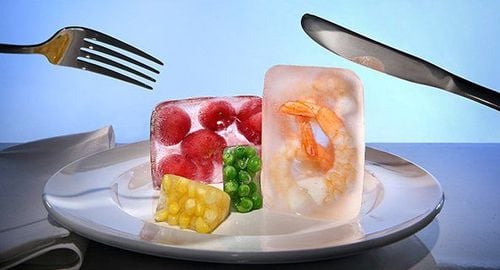
Người bệnh mổ polyp mũi nên kiêng ăn uống đồ lạnh
3.2 What should patients with nasal polyp surgery eat? Some good foods for the recovery process after nasal polyp surgery that patients can add to their diet are:
Foods rich in vitamin C: Including oranges, tangerines, strawberries, blueberries, celery, tomatoes, dark green vegetables,... because they have the ability to strengthen the body's resistance, helping to recover faster after surgery; Grains: Green beans, red beans, walnuts, cashews, ... all contain many nutrients and minerals, which help the body recover quickly and avoid allergies. However, patients should pay attention not to drink soy milk because it will increase mucus in the nose, leading to difficulty breathing, choking; Foods rich in Omega-3: Found in marine fish such as salmon, sardines, ... High levels of Omega-3 in foods help reduce pain and swelling of the incision so that the patient recovers faster after surgery. Patients with nasal polypectomy need to strictly follow the doctor's instructions in postoperative care and have a scientific diet, exercise, and rest to recover quickly, reduce the risk of recurrence and complications. .
Please dial HOTLINE for more information or register for an appointment HERE. Download MyVinmec app to make appointments faster and to manage your bookings easily.




